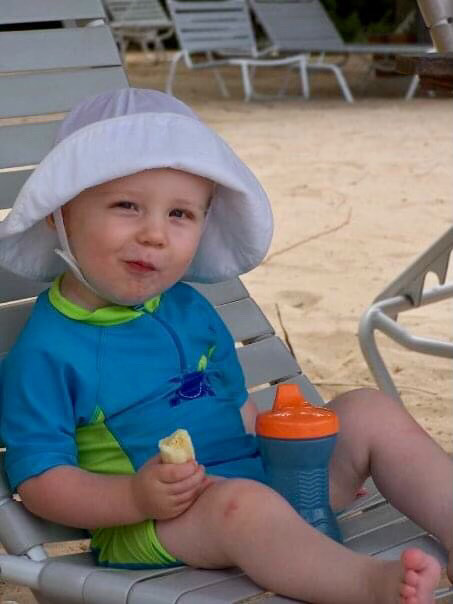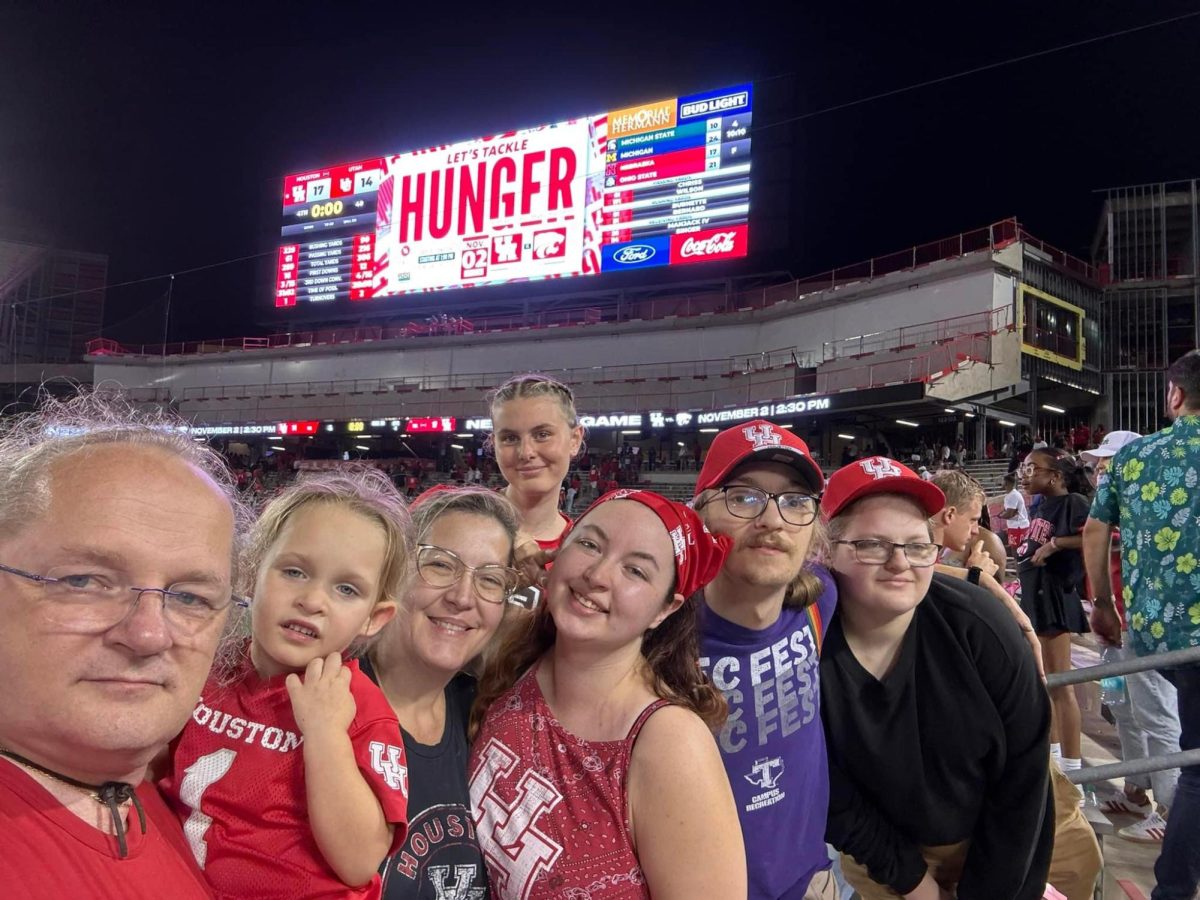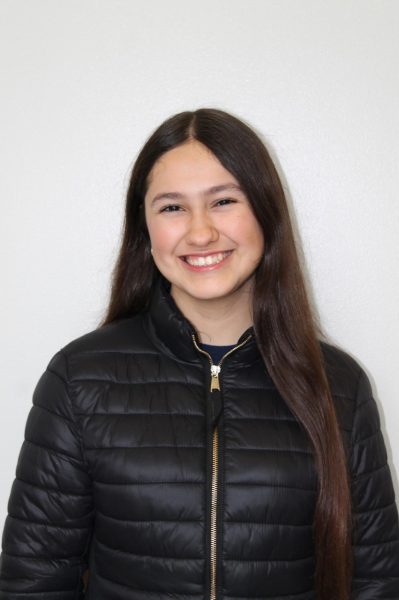While most kids are eagerly awaiting for their college decisions to roll in, Senior Nick Haslam already knows where this next chapter will take him — across the Atlantic Ocean.
“I was in class, and I got super excited for it [the college decision email],” Haslam said. “I really wanted to go to St Andrews. I was just applying to Oxford because why not? So it was really stunning because it [St Andrews] had been my dream school for two years.”
The University of St Andrews, located in St Andrews, Scotland, finds its home in a quiet, quaint, seaside town where the century-old history permeates the brisk Scottish air. Founded in 1413, the university boasts a reputation as one of the UK’s most prestigious universities, situated in the same realm as Oxford and Cambridge. Among being known as the birthplace of Princess Kate Middleton and Prince William’s relationship, it also has a reputation for having a diverse student body, with, according to Haslam, 60% of attendees being international students and 16% being American. This was only one factor that attracted Nick to apply to the school.
“I think first of all, definitely, their major. I’m going into international relations. And they’re on top in Europe and in the UK for that major. So that was like a no-brainer for me,” Haslam said. “And then also the campus is so beautiful. It’s in Scotland. That’s where I was born. That’s where a lot of my first memories were.”
Haslam describes visiting the campus over the summer as providing a sense of nostalgia. While the majority of students feel that going to school is their first experience of leaving home, Haslam is unique in the sense that it is almost as if he is returning.
“I was just trying to picture how it would feel to live there. So it’s a sort of town on the sea. There’s a beach,” Haslam said. “I don’t know, it reminded me of memories from when I was little. Memories of Scotland when I was little and as well times that I spent in Canada. I lived in a small town that was also off the coast in Canada, so it sort of felt familiar. It felt like a nice place not only to study, but to live for four years.”
Haslam’s personal experience with travel also contributed to his decision to attend school abroad. Moving around frequently in his childhood due to his father’s job in oil, Haslam welcomed change, his steadfast companion for all these years, which is something he is eager to return to.
“I’m super excited to meet people there and just sort of like live in a new place. I like moving to new places. I’ve done it my whole life. I’ve been here [at Carnegie] for what feels like a long time to me, so I’m ready to move around,” Haslam said.
Haslam is enthusiastic about embarking on this new journey. He is keen to take advantage of the experience of attending school abroad and its benefits, which going to university in America cannot necessarily offer.
“There’s more perspective and this is partially from my experiences moving abroad. There are perspectives you cannot get as an American living in America,” Haslam said. “Getting the opportunity to meet people who have different views than you, wildly different views, wildly different cultural backgrounds, that’s what I think is going to be the most interesting. Plus you get to travel around a lot more. Plane rides are like $35 to Europe. That’s going to be awesome.”
To seize this opportunity, Haslam applied to Oxford, the University of St Andrews, the London School of Economics, the University of Warwick and Durham University in Oct., receiving decisions as early as Dec. courtesy of the rolling admissions process at these schools. By applying to UK universities through the UCAS application and American schools, such as the University of Virginia, Georgetown and Northeastern, Haslam experienced firsthand the stark differences between the UK and American application process.
“There’s a personal statement but it’s just in no way similar to our personal statement. It’s very different,” Haslam said. In America, we’re talking about ‘Don’t tell them about your extracurriculars. Don’t brag.’ You brag in this one, so you don’t have an extracurricular list. You don’t have an activities list. This is the one piece of writing they see from you except for your grades. And so you write about first why you want to apply for your major because you’re not applying to school, you’re applying to your major,” Haslam said.
Unlike American colleges where students can apply as “undecided,” applying to majors is required in the UK admissions process. Nick recommends that students applying to schools in the UK either are secure in their major of choice or are at least confident they can dedicate three to four years of study in that subject, especially since it is quite difficult for current university students to shift to another major. Additionally, another notable difference in admissions processes was the number of UK schools prospective students are allowed to apply to, which Nick praises.
“I think it’s a necessity because it sort of stops people from applying to the schools that maybe they shouldn’t be. It gets students ready and in their mind, to at least actually think about ‘What university can I actually get into, can I actually go to?’ and really focus on their applications to be a lot more pinpointed. I think it’s a lot better than the American system where you have people who are applying to 20 schools. The schools are flooded with applications,” Haslam said.
While the majority of students at CVHS and throughout the United States are stressed and worried about the elusive American college admissions process, Nick had the preconceived notion that college admissions would be straightforward and easy, and he was right.
“I honestly think it was easy. Because the point is, you’ve done all the work. Now you’re just reporting. You’re self-reporting your grades, APs, ACT or SAT, whatever scores they may be, and then your personal statement, send it off, and then they’ll come back to you in a certain amount of time. It’s rolling admissions. So you don’t have to wait until March, especially for international students who [the schools] sort of want to get you before you apply to U.S. schools. You get those earlier,” Haslam said. “It was really easy, really straightforward. I loved it, honestly, way better than American [admissions].”
While American college application essays focus on personal qualities or experiences, Nick found the opportunity to express different aspects of himself as an individual and intellectual in his UK personal statement.
“I mentioned books I read as evidence that I’m interested in this [international relations]. I mentioned some reading of Hobbes, the Leviathan. I mentioned a biography of game theory and Von Neumann, sort of about economics. I talked about the Russia-Ukraine war that’s going on, and then what my thoughts were on how I related the major. It was very much more so an essay where I’m backing it up with evidence,” Haslam said.
Haslam described the UK college application process to be “easy,” “straightforward” and “relaxing.” He credits this to how UK schools lay out the exact criteria for acceptance. Given that you meet those requirements, you are more than likely to receive an acceptance. Nick’s exceptional grades, high standardized test scores and extracurriculars positioned him in a place where he was confident in receiving a seat, providing a sense of security that American colleges are notorious for not providing.
Additionally, he thanks the structure of Carnegie’s curriculum, feeling it gave him an opportunity to stand out as a student.
“We have a unique system where we get to do a bunch of APs, and that’s really all the international schools care about, your scores on your APs. I probably wouldn’t be going to St Andrews without having taken those AP classes and I wouldn’t have gotten those scores,” Haslam said.
While Haslam acknowledges that attending school abroad may not be for everyone, he considers the vast opportunities to expand one’s horizons as well worth the dedication he had throughout high school. For students planning to apply to universities abroad, Nick is able to provide advice and guidance on how they can make themselves the best applicant possible.
“Focus on APs. I know I feel like a lot of Carnegie students have the idea that ‘Oh, APs don’t matter. I just care about my GPA.’ This would be the opposite. Your AP scores do matter. You need to get a five in the classes that you’re taking, especially ones that could pertain to your major,” Haslam said. “Get your test scores up, SAT, ACT, the higher they are more likely you’re going to get in. Keep your grades up of course.”
For the vast majority of high school seniors, the college application process is described as a stressful process of essay after agonizing essay and confusing admissions jargon. Despite this, stress is not something CVHS students are unfamiliar with. Students admit that attending a public high school ranked #35 in the United States comes with the expected side-effect of academic rigor that can sometimes be tolling on freshmen and seniors alike. Nick offers words of consolation, assuring those applying to college that it does get better.
“I keep hearing from previous students here, parents and previous students, that Carnegie will be the hardest you’ve ever worked, like junior year. In college, it probably won’t be harder because you’ll be learning things you want to learn. You have less classes. This is the hardest,” Haslam said. “So that makes me feel a lot more confident. I feel confident going in. I feel like I know my stuff. I’m going to be prepared to do well. I can enjoy myself finally.”









